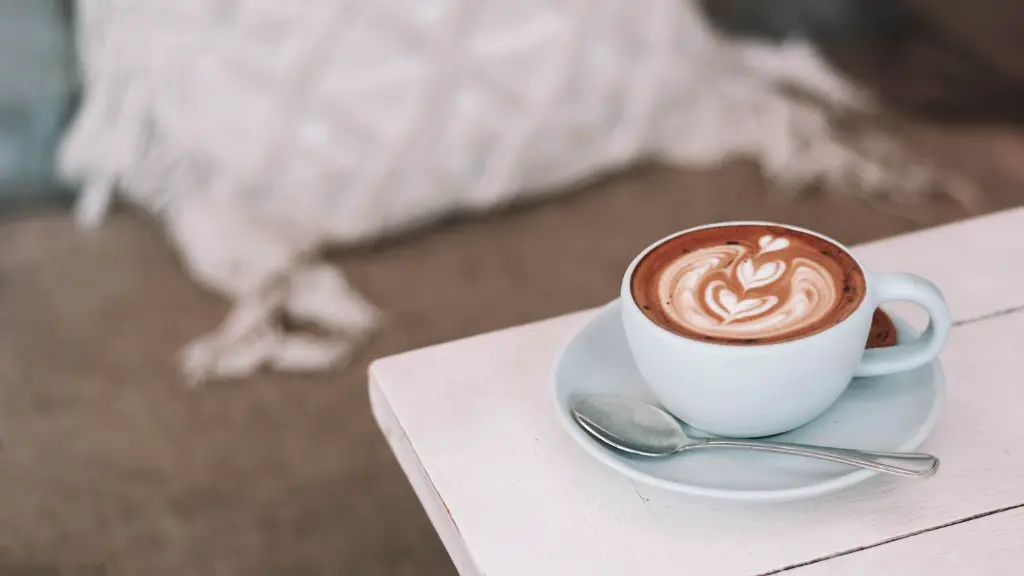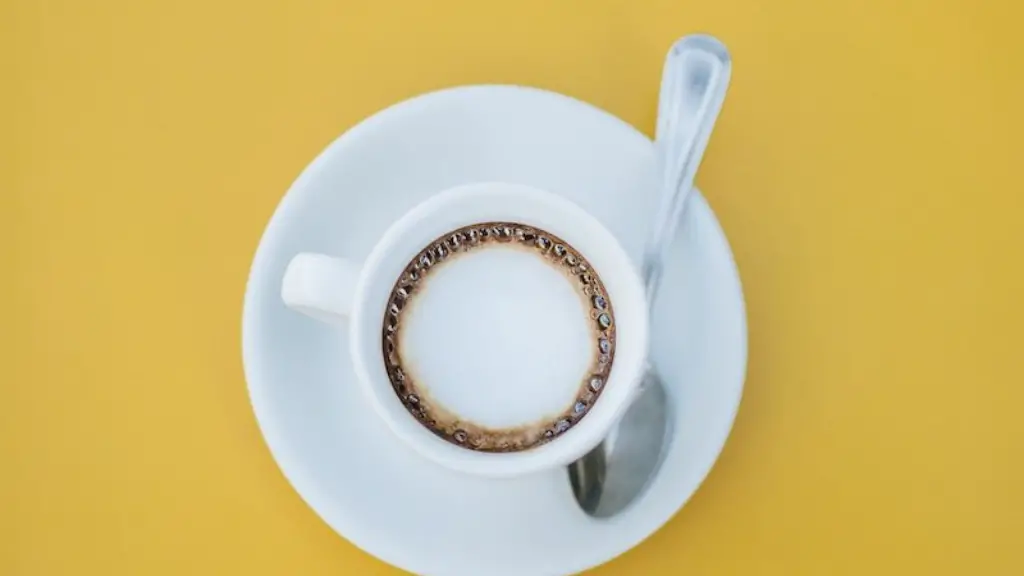What is in Coffee that Causes Anxiety?
Coffee is a popular beverage, containing caffeine, which is known to cause anxiety in some people. Caffeine is a naturally occurring stimulant found in a variety of plant species, and the most popular sources are coffee and tea. When ingested, it enters the bloodstream and quickly starts affecting the brain’s chemistry and nervous system. In moderation, caffeine can be beneficial, but too much of it can lead to a state of high alertness, jitteriness, restlessness, irritability and difficulty concentrating. It also leads to a range of physical manifestations such as headaches, rapid heart rate, increased blood pressure and nausea.
The Right Amount to Combat Anxiety
According to the Mayo Clinic, the general guideline for healthy adult coffee consumption is 400 milligrams per day, equivalent to four 8-ounce (240 ml) cups of coffee. Keep in mind that this amount can vary from person to person due to individual differences in caffeine sensitivity, age, and tolerance. In general, the 400-mg threshold is a safe place to start. While coffee contains caffeine, it is important to note that other foods, such as tea and chocolate, may also contain small amounts of this stimulant. It is also found in some medications as well.
Caffeine Alternatives
If you are looking for ways to reduce your caffeine intake or substitute your current coffee drinks, there are a number of options. Some individuals find that cutting out caffeine completely is what helps them maintain optimal mental health. In this case, cutting coffee out of your daily diet is an option. Many non-caffeinated beverages can be consumed in place of coffee. Caffeine-free herbal teas such as chamomile, ginger, lavender and mint can be beneficial for calming down the nervous system and promoting restful sleep. Other caffeine-free drinks include hot cocoa, decaf coffee, sparkling water and carbonated beverages.
Lifestyle Habits For Reducing Anxiety
In addition to cutting out or moderating caffeine intake, it is important to focus on healthy lifestyle habits to reduce anxiety. Exercise, relaxation techniques, and sleep hygiene are all important aspects of managing stress and anxiety. Research conducted by the Anxiety and Depression Association of America has suggested that regular exercise can help increase endorphins and serotonin levels which can improve overall wellbeing. Relaxation strategies such as mindful breathing, progressive muscle relaxation and guided visualizations are all well-known ways to combat anxious feelings. Furthermore, maintaining a healthy sleep schedule has been linked to dramatic improvements in mental health, concentration and performance.
When to See a Professional
If uncomfortable feelings of anxiety do not go away or are severe, it is important to consult a professional to identify underlying causes and provide specific guidance on how to manage anxiety. New anxiety treatment approaches such as cognitive behavioral therapy have been long-proven to be a successful tool in treating anxiety. Furthermore, if you are having difficulty reducing problem coffee consumption, seeking professional help is the best course of action.
Coffee as Part of a Healthy Diet
According to Dr. Scott Krakower, assistant unit chief of psychiatry at Zucker Hillside Hospital in Long Island, New York, there are some indications that moderate amounts of coffee can have health benefits. For example, one cup a day can lower your risk of stroke, coronary heart disease, Parkinson’s disease, type 2 diabetes, and certain types of cancer. However, it is important to be aware of your own needs and abilities when it comes to caffeine, and if you are more prone to anxiety, supplementing your coffee intake with other, caffeine-free drinks might be beneficial.
Stimulant-Free Equivalents
In case stimulants containing caffeine are an absolute no-no for you, there are some stimulant-free and caffeine-free options for you to explore. Some of these drinks are herbal infusions, such as chamomile tea, valerian root, or peppermint tea. There is also the option to look out for carob-based drinks, or nutritional supplements (such as B vitamins). Moreover, if you are looking for a coffee alternative, chicory root coffee and roasted dandelion root coffee are two great choices.
How the Coffee Industry is Adapting to Anxiety
As more individuals are realizing the deleterious risks associated with overindulging in caffeine, the age-old coffee industry has had to become more creative with their offerings. Many companies have started to offer products with low/no levels of caffeine, while still maintaining the beloved coffee-like taste. Popular alternatives include cold brew and nitro cold brew, kombucha, or even herbal and adaptogenic mocktails. The artisanal coffee scene has exploded in recent years, with things like honey lattes, nitrogen-infused teas, and flavored turmeric drinks winning hearts all over the world. These beverages, which are often carefully crafted and have holistic health benefits, are becoming a viable alternative to traditional coffee consumption.
Zero-Caffeine Wellness-Focused Approaches
Apart from changing one’s drinking habits, some people opt to take more drastic measures to reduce their anxiety levels. This usually involves eliminating coffee from their diet and adopting a more holistic approach to wellness, such as meditation and yoga. Through meditation, one is able to increase their awareness of how their body and mind is feeling at any given moment, which can enable them to manage their anxiety more effectively. Similarly, yoga is an activity that has been proven to be excellent for reducing anxiety and stress levels. Yoga promotes relaxation and calming of the senses, which can be incredibly beneficial in eliminating anxiety.
Conclusion
In conclusion, coffee can often lead to feelings of anxiety in people who are particularly sensitive to caffeine. However, it is important to note that everyone has different specific limitations, and in moderation, one cup of coffee a day can have health benefits. Therefore, one should aim to reach the 400mg daily threshold while also exploring alternative drinks and healthy lifestyle habits in order to reduce anxiety. Ultimately, the key to tackling anxiety is to be aware of one’s own sensitivities, and to make sure that the regular intake of stimulants is not leading to any physical or mental distress.


